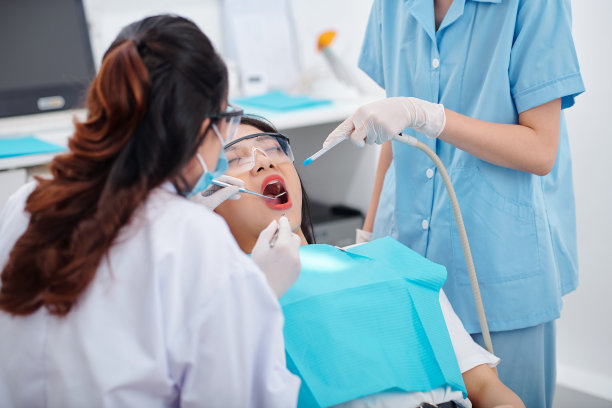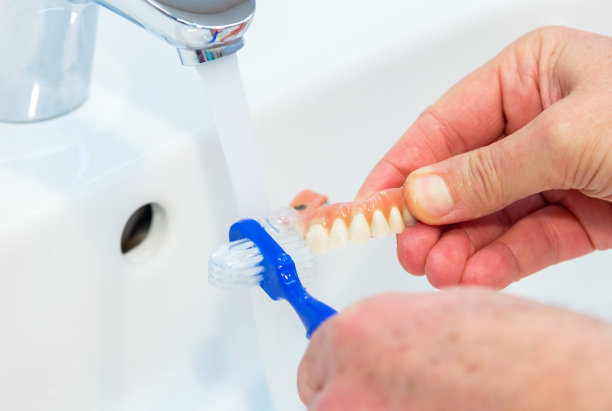Summary: Dental fillings are a common procedure to restore teeth affected by decay or damage, yet essential precautions must be followed post-treatment to ensure optimal oral health. This article outlines critical practices following a dental filling, including dietary restrictions, pain management, oral hygiene adjustments, and follow-up care. By adhering to these guidelines, patients can avoid complications, enhance healing, and maintain the longevity of their dental work. Understanding the significance of each precaution will empower individuals to take charge of their oral health and facilitate a smooth recovery.
1. Dietary Considerations After Your Filling

After receiving a dental filling, it is vital to monitor your diet for at least 24 hours. During this period, avoid consuming hard, sticky, or crunchy foods that could dislodge or damage the filling. Foods like nuts, popcorn, and chewy candies can pose risks and should be strictly avoided.
In addition to avoiding specific food types, it is also important to refrain from very hot or cold beverages. The sensitivity of your teeth might be heightened after the procedure, and extreme temperatures can lead to discomfort or pain. Opting for lukewarm beverages can help prevent unnecessary irritation.
Lastly, if you have received a temporary filling, your dentist may advise a more restrictive diet. Always consult with your dental professional for personalized dietary recommendations based on your specific situation.
2. Managing Pain and Discomfort Effectively
Post-filling discomfort is a common experience for many patients, and knowing how to manage it can significantly improve your recovery. Over-the-counter pain relievers, such as ibuprofen or acetaminophen, are often recommended to alleviate any pain. Be sure to follow dosage instructions on the packaging or those provided by your dentist.
For patients who experience sensitivity to hot or cold, using toothpaste designed for sensitive teeth can offer relief. These specialized toothpaste brands contain compounds that help reduce sensitivity over time. Additionally, maintaining a gentle oral care routine can minimize irritation.
If pain persists or worsens beyond the expected recovery time, its crucial to contact your dentist. Persistent pain may indicate underlying complications, such as an infection or an issue with the filling itself that requires professional attention.
3. Adjustments to Oral Hygiene Practices
After a dental filling, your regular oral hygiene routine may need adjusting to accommodate sensitive areas. While it is crucial to continue brushing twice daily, being gentle around the filled tooth is important. Avoid aggressive brushing near the filling to prevent irritation and ensure it remains intact.
Additionally, using a soft-bristled toothbrush can prevent unnecessary abrasion of the filling and surrounding gums. Flossing should also continue, but patients should be careful to slide the floss vertically along the side of the new filling without yanking it, as this can displace the filling.
Moreover, consider using an antimicrobial mouthwash to help with healing and maintaining oral health. This can aid in reducing bacteria around the filling, promoting a healthier environment in your mouth.
4. Importance of Follow-Up Appointments
Follow-up appointments with your dentist are essential for monitoring the integrity of your filling and overall dental health. These appointments allow your dentist to assess how well the filling is healing and to check for any adjustments that might be needed. Staying on schedule for these visits can prevent future dental complications.
During your follow-up, discuss any concerns you might have experienced after the filling. Addressing these issues promptly can lead to better outcomes and can also provide insights into your oral health practices.
Remember, regular dental check-ups are vital for maintaining dental work, especially after a filling. Your dentist can help you stay proactive about your oral health, ensuring long-lasting results and offering tailored advice based on your individual needs.
Summary:
Each precaution outlined in this article plays a significant role in ensuring the success of your dental filling and promoting overall oral health. From mindful eating habits and effective pain management to adjusted oral hygiene and the importance of follow-up care, these guidelines provide a comprehensive approach to post-filling care.
By prioritizing these essential precautions, you empower yourself to achieve and maintain optimal oral health following a dental filling. Your smile deserves the best care possible.
This article is compiled by Vickong Dental and the content is for reference only.
Vickong Dental
Vickong Dental is a large medical group established in Hong Kong in 2008 by professors from well-known medical universities in Guangdong and Hong Kong, as well as medical doctors from key national '985' universities (including Master's supervisors and senior professors). The chain of branches brings together expert dentists with PhDs and Master's degrees from Hong Kong and Mainland China, committed to providing high-quality dental treatment.
"Vickong Dental Practices the University Motto of 'Healing and Serving Society,' with a Stable Operation for Sixteen Years. It Has Been honored with Hong Kong Enterprise Leaders's Choice,' and is a Global Trusted Implant Center for the Nobel Implant System. Recommended by Hong Kong Metro Broadcast and Guangdong Television, it Serves Customers from Over Thirty Countries and Regions, Gaining the Trust and Favor of Citizens from the Guangdong-Hong Kong-Macau Greater Bay Area and Surrounding Cities.

Thousands of customers' unanimous praise
The most recognized and highly recommended dental service by customers in the Guangdong-Hong Kong-Macau Greater Bay Area
We Ensure You Receive Detailed Care and Attention Here
Hong Kong standards, Shenzhen prices, Your Trusted English-speaking dentists

Vickong Dental Medical-Grade Instrument Disinfection Process
Vickong Dental Medical-Grade Instrument Disinfection Process

Vickong Dental Chain: A Warm and Comfortable Environment for Treatment






Appointment Hours

Q&A
Why choose Vickong Dental?
Vickong Dental practices the university motto 「Medicine to Benefit Society」, with each branch bringing together highly qualified dentists with doctoral and master’s degrees from Hong Kong and the Mainland, and has maintained seventeen years of steady operation。Recipient of 「2024 Hong Kong Enterprise Leaders Brand」, 「2025 Hong Kong Enterprise Leaders Brand」, a Nobel Biocare Global Trusted Implant Center, and a brand recommended by Metro Radio Hong Kong and Guangdong TV。
To date, we have served customers from more than thirty countries and regions,earning exceptionally high word-of-mouth recognition and trusted recommendations from residents across the Guangdong-Hong Kong-Macao Greater Bay Area and surrounding cities
We have eight major branches in Zhuhai、Shenzhen,and a consultation and service assurance center in Hong Kong,so you can book a free consultation at any time for any questions,which is very reassuring.
If I do not accept the quotation after the CT scan, will I be charged??
No! As long as the actual treatment has not started, you will not be charged any fees.
Will there be any additional charges during the treatment process?
No, there won’t be any additional charges. Before treatment begins, we will clearly explain the treatment plan and its corresponding fees. Only after the patient agrees and signs the consent form will we proceed with the dental service.
Can I pay in Hong Kong dollars?
Yes. Vickong Dental accepts payment in Hong Kong dollars. The amount will be converted based on the exchange rate of the day, and the applicable rate will be clearly communicated to you in advance.
Can I reschedule my appointment at any time?
Yes. Please contact us via **WeChat** or **WhatsApp** as early as possible, providing your original appointment time and details, along with your preferred new date and time slot for rescheduling.













